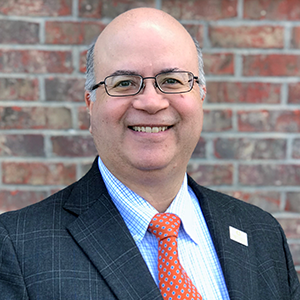The Hogg Foundation for Mental Health launched the Hogg Policy Academy and Policy Fellows grant initiative in 2010 with the goal of bolstering the mental health and substance use policy workforce to make long-term systems change.
As noted in this blog post, the 2024-26 Policy Academy and Fellows grants will be the first to take place after some important changes to the program. For the first time, we are piloting a state-level focus on children, youth and family mental health, with a preference given to organizations located in the Central Texas area.
To some of our stakeholders, this seems like an abrupt and dramatic change. Some have voiced concerns about the shift to a state-level focus, for example, when we know that Texas is a large and diverse state. Different regions having different policy concerns and priorities. Some may ask: are we risking becoming too Austin-centric in our focus on state-level policy? The Hogg Foundation has a deeply felt desire to impact mental health policy at all levels: local, regional, and state. Does this change to the Policy Academy and Fellows program interfere with that desire?
The answer to both of those questions is no. We remain mindful of the need for training in mental health policy that is true to the geographical diversity of this great state. While this one grant program may have changed, we are still actively exploring future complementary efforts that re-prioritize local and regional policymaking.
Learning from Experience
It should also be noted that this decision was made only after much deliberation by our outstanding Policy Unit, backed up by years of learning and experience. For example, regular attendance at Policy Academy meetings is a crucial part of the program, and yet the geographic spread that it used to have made that challenging for some organizations, their fellows, and their mentors. Though organizations across the state are still eligible to apply, we are now asking those outside of central Texas to carefully consider their capacity to provide support to their fellow and mentor(s) to meet the expectation of attendance at meetings around the Central Texas area when applying.
Nor is this the first time that the program has evolved since its inception. Previous changes include the addition of Peer Policy Fellows; the extension of the fellowship from one to two years; and changing the grant cycle from the fall to the summer to better align with preparing for the legislative session.
Benefits of a Thematic Shift
Regarding the thematic shift to children, youth and families, again, experience was our guide. Rather than charging the Policy Academy with covering every mental health issue in depth (a formidable task); we now are open to the potential benefits (fellowship, coordination, a common agenda) of a shared topic of interest among the participants. This remains in line with our strategic approach to go upstream and address the root causes that influence our mental health and well-being. A thematic focus will allow us to concentrate resources with the concerted effort of creating impact.
As an evidence-based foundation with finite resources, we have an obligation not to stagnate or stick with what isn’t working. Nonetheless, I still say to our stakeholders: thank you. We appreciate the reminder that we must always consider the impact of our decisions on existing stakeholders even as we embrace future possibilities.
Related Links:

